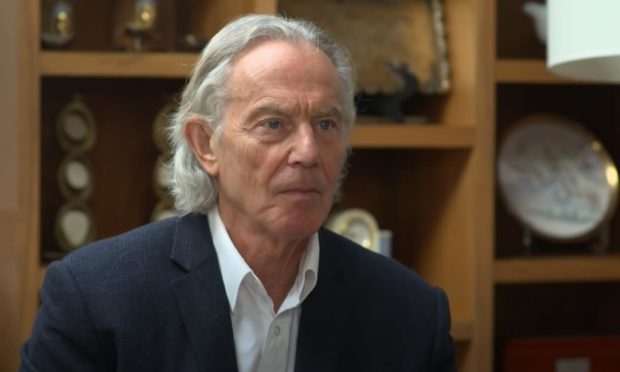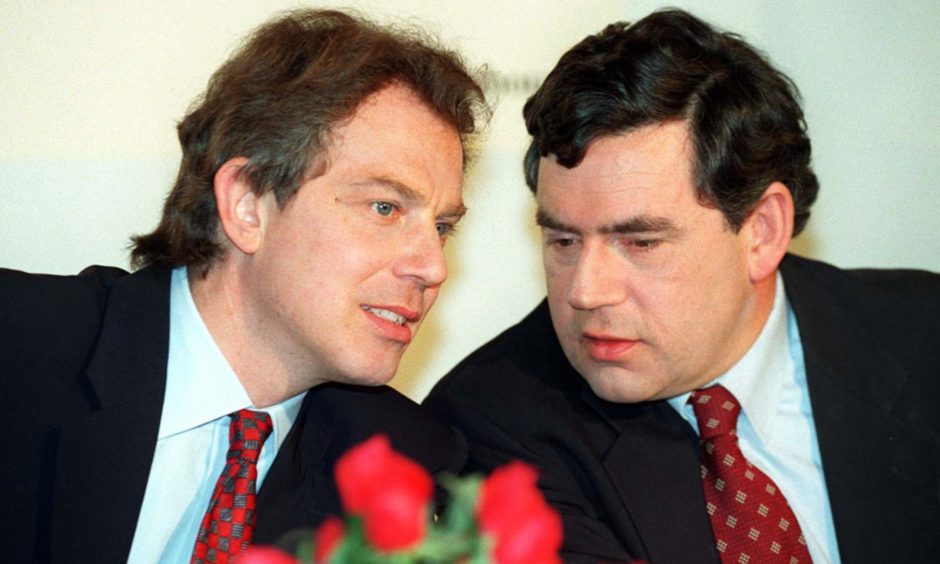Very little is capable of making me pause while scoffing a raspberry doughnut, but Tony Blair took the biscuit.
I stopped and gasped at the former prime minister’s silvery visage on television. A shock of shaggy silver hair stretching down towards his neck was something to behold.
Don’t they normally issue a warning to viewers with a nervous disposition? You know the sort of thing: “Flashing images, adult themes” and so on.
Mr Blair was put on the spot on TV news for sanctioning Scottish devolution in 1997, and letting a genie out of the lamp for full-blown independence.
Looking back, it seems absurd to assume everyone in Scotland accepted a devolved administration within the UK as a final position. Yet a variation of this co-exists in federal systems of government in US, Canada, Germany and Australia.
It’s called having your cake and eating it: lots of power to do your own thing, but part of a powerful family unit to absorb bigger shocks.
Cosy coalitions are no longer in fashion
Of course, when Mr Blair offered a chink of light for self-determination, the SNP was not such a force. Pro-union parties were expected to buy into cosy coalitions to make devolution work.
The architects of this brave new Scottish Parliament did not envisage the extraordinary rise of the SNP within a decade – or that it would take a battering ram to that chink of light.
“Look what a fine mess you created, Tony,” was the gist of the interview.
But it was hard to concentrate on his words, as Mr Blair’s shiny silver mullet seemed to fill the screen. His new appearance can’t simply be explained away as a shaggy lockdown look. That doesn’t happen to international figures whose appearance is manicured down to the last detail.
No, his liberation must be a nod to his youth and a natural state of being. I could not make my mind up if he looked more like a backing singer for Status Quo or an actor auditioning to be a wizard in Harry Potter.
The problem is that the words flowed past me as easily as his locks swept around his ears. This often happens with TV news. The background, somebody’s eyebrows or their mannerisms distract me so I forget what they were talking about.
It didn’t help that the cameraman panned around the back of Mr Blair’s head. It reminded me of Monty Don in Gardener’s World lingering over a striking cineraria plant – or Silver Dust, to you and me.
Celebrating silveriness
His hair showed devolution in action. Who knows which direction it might travel? And it’s hard to keep in place, which Mr Blair was only too conscious of as he smoothed it back from time to time.
I was impressed with his interview for the wrong reason. I decided to do something about my hair.
Trying to halt the grey invasion is a lost cause; even my grandkids are not taken in any more when I tell them my hair is “Arctic blond”. So instead of struggling to keep grey at bay, I am celebrating silveriness.
I was impressed with Blair’s interview for the wrong reason. I decided to do something about my hair
My wife got straight to the root of it by telling me about a shampoo that actually turns dull grey into sexy silver. I’ve been piling it on ever since. Thanks, Tony.
The odd thing is that my wife thinks it is making my hair darker – can you believe it? People spend a fortune on hair dyes to rid them of grey, yet something to make you silver is possibly having the opposite effect on me, unless it’s just the light.
Devolution déjà vu?
Maybe the Scottish election, “supermajority” mania and IndyRef2 fever are turning you grey, too.
Tony Blair conceded his biggest mistake all those years ago was underestimating the potential appetite for full independence. He also accused powers that be of allowing English-Scottish relations to cool and drift apart.
True, but what also resonates is his core argument which he has clung to grimly ever since: that voting for a devolved SNP Government does not translate as an automatic vote for independence.
It looked plain sailing for Alex Salmond when he won a stunning first ever “supermajority” for the SNP at Holyrood in 2011.
Significantly, an underwhelming 45% vote share which hauled in this record number of seats carried through as yes votes three years later, and he foundered on the referendum rocks.
A poll referenced in The P&J last week revealed that as many as 10% of SNP voters would not support a breakaway. Déjà vu?
Maybe there is still hope for those who dream of the best of both worlds without splitting. Or dare I call it a silver lining?
David Knight is the long-serving former deputy editor of the Press and Journal


